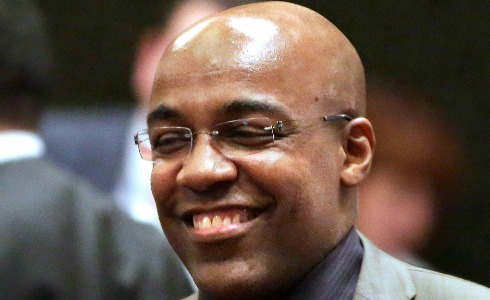 Illinois Sen. Kwame Raoul (AP Photo/Seth Perlman)
Illinois Sen. Kwame Raoul (AP Photo/Seth Perlman)
SPRINGFIELD, Ill. — An Illinois state senator said Monday he will rework legislation allowing the carrying of concealed guns that emerged last week after concerns about extra levels of scrutiny for Chicago and Cook County, but he defended the proposal against complaints that it was more restrictive than first touted.
A copy of Sen. Kwame Raoul’s proposed legislation that was obtained by The Associated Press indicates the plan would require an applicant to not only be free of a criminal record and pass a background check, but provide a “proper reason” for wanting to carry a gun and be “of good moral character.”
Those are hallmarks of laws in states such as New York, where police have wide latitude to deny applications. But Raoul said it was lifted from neighboring Indiana, whose concealed carry law dates back decades.
The AP review of the Senate legislation came on the same day Attorney General Lisa Madigan asked the U.S. Supreme Court for more time to decide on whether to challenge the 7th Circuit Court of Appeals’ December decree that the state’s concealed carry ban was unconstitutional.
The appeals court ordered state lawmakers to enact a law by June 9 allowing concealed carry. Madigan has until May 23 to decide on an appeal but is seeking a 30-day extension.
The issue has divided the state for years, as much along geographical lines as along political ones. Violence-weary Chicago Democrats believe more guns are not the answer and have proposed restrictive measures. Second Amendment devotees elsewhere in the state argue for permissive rules that grant gun-toting permits to virtually anyone who meets the requirements.
Raoul, a Chicago Democrat, advertised his proposal as a compromise. It recognized “sensitivities” of densely populated Chicago and Cook County, he said, by proposing local police be able to deny an “endorsement” to carry in those jurisdictions even if the Illinois State Police had approved an applicant’s permit for the rest of the state.
Gun rights advocates pounced on the idea as too bureaucratic. They also argued Raoul was mistaken when he said that his legislation constituted a plan in which police had to provide a permit if an applicant passed a background check and acquired requisite safety training.
That’s because Raoul’s initial legislation would also require an applicant to provide state police with “a proper reason for carrying a firearm” and prove that he or she “is a responsible person of good moral character” whose permit would be “consistent with public safety.”
“We just think that if you pass the background check, and you meet all the qualifications with the training, you should be able to get a concealed carry permit, no matter who you are,” said Rep. Brandon Phelps, a Democrat from Harrisburg who is the House point person on concealed carry and a proponent of more permissive concealed carry law.
Raoul said a staff member told him that verbiage came from neighboring Indiana, which has been considered a conservative “shall issue” state for at least 25 years.
“I’ve never heard anybody characterize the state of Indiana as having a super-liberal approach to guns,” Raoul said.
“Proper reason” is stated plainly in the Hoosier state’s law: It is “for the defense of oneself or the state of Indiana.”
Raoul said he envisions something similar in Illinois. A “threat,” for example, could be as simple as an applicant stating that he or she feels unsafe because of the crime rate in the neighborhood.
Raoul said he might propose alternatives for colleagues to consider, such as a plan where state police make the decision but allow an opportunity for Chicago or Cook County police to object to, but not deny, a permit. That’s along the lines of the Phelps’ more permissive plan.
Legislative agreement on the issue — while elusive at the moment — plays into Madigan’s petition to the Supreme Court asks for more time to consider an appeal.
“No decision has been made yet in terms of what our next steps will be,” Madigan spokeswoman Natalie Bauer said. “But the attorney general will make a final decision partly based on a very careful review of a draft petition.”
The request contends the ruling on Illinois’ gun permits raised questions about whether the Second Amendment applies outside the home and if it does, what standards should govern it and how a state could respond to challenges to those standards.
